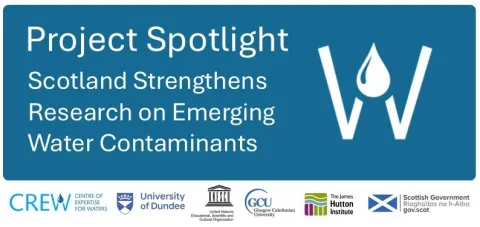
Scotland is taking steps to understand and address the risks posed by emerging contaminants in its water environment. Three research projects, commissioned by the Centre of Expertise for Waters (CREW), have provided critical insights into the presence, sources, and potential impacts of contaminants such as per- and polyfluoroalkyl substances (PFAS), pharmaceuticals, microplastics, and antimicrobial-resistant genes.
A broad study on contaminants of increasing concern examined pharmaceuticals, pesticides, microplastics, and other pollutants. The findings underscored the complexity of these substances, which often enter the water environment through sewage effluent, agricultural runoff, and landfill leachate. The research recommended expanding monitoring, improving data sharing, and fostering collaboration between policy and research teams to better understand the environmental and human health risks.
A more focused project on PFAS, 17β-estradiol, and nonylphenol, assessed their potential presence in drinking water. Mapping potential sources suggested that PFAS and nonylphenol are more likely in industrial and urban areas, while 17β-estradiol is linked to intensive agriculture. The study emphasised the need for targeted monitoring to inform treatment strategies and minimise risks.
Further to this work a national assessment of PFAS in drinking water explored how these persistent chemicals enter Scottish waters from industrial activities, landfill sites, wastewater, and even atmospheric transport. Although PFAS concentrations in raw water remain below Scotland’s strict drinking water standard of 0.1 µg/l, some compounds not currently regulated were identified as candidates for future monitoring. The research highlighted areas of higher risk, including the Northeast, Central Belt, South, and parts of the West Coast, supporting a more targeted approach to long-term surveillance.
By advancing research on water contaminants, Scotland is strengthening its ability to safeguard public health and protect its natural environment from emerging threats.
CREW would like to thank the research teams for all three projects (The James Hutton Institute, Glasgow Caledonian University, the University of Dundee and the UNESCO Centre for Water Law) and the Project Steering Groups (DWQR, Scottish Water, SEPA, Food Standards Scotland, WICS, NatureScot, Perth and Kinross Council, Public Health Scotland and the Scottish Government) for their dedication and support to the projects and in addressing this important issue.